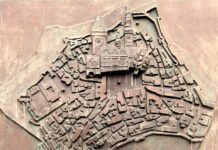Alzheimer’s disease is a progressive neurodegenerative disorder that affects millions of people worldwide. One of the challenges faced by individuals with Alzheimer’s and their caregivers is ensuring proper nutrition and meal tracking. Proper nutrition is essential for overall health and well-being, and it can also help manage some of the symptoms associated with Alzheimer’s disease. In this guide, we will explore the importance of tracking nutrition and meals for individuals with Alzheimer’s disease and provide tips on how to do so effectively.
One of the first steps in tracking nutrition for individuals with Alzheimer’s disease is to establish a routine for meals. Eating at regular times each day can help maintain a sense of structure and familiarity for the individual. It is also important to create a calm and quiet environment during meal times to reduce distractions and promote better eating habits. Caregivers should be patient and understanding, as individuals with Alzheimer’s may have difficulty with certain foods or utensils.
In addition to establishing a routine, it is important to focus on the quality of the meals being served. A balanced diet that includes a variety of fruits, vegetables, whole grains, lean proteins, and healthy fats is essential for overall health. Caregivers should aim to provide nutrient-dense foods that are rich in vitamins and minerals to support brain health and cognitive function. It may be helpful to consult with a registered dietitian to create a personalized meal plan that meets the individual’s specific nutritional needs.
Tracking meals and nutrition can be a helpful tool for caregivers to ensure that the individual is receiving adequate nourishment. Keeping a food diary or journal can help track what foods are being consumed, as well as any changes in appetite or eating habits. Caregivers can also use apps or online tools to track calories, macronutrients, and micronutrients to ensure that the individual is meeting their nutritional requirements.
In addition to tracking meals, it is important to monitor hydration levels for individuals with Alzheimer’s disease. Dehydration can exacerbate symptoms such as confusion and agitation, so caregivers should encourage the individual to drink plenty of fluids throughout the day. Offering water, herbal teas, or other hydrating beverages can help prevent dehydration and promote overall health.
Overall, tracking nutrition and meals for individuals with Alzheimer’s disease is an important aspect of caregiving. By establishing a routine, focusing on quality meals, and monitoring hydration levels, caregivers can help support the overall health and well-being of their loved ones. Consulting with healthcare professionals, such as dietitians or doctors, can provide additional guidance and support in managing nutrition for individuals with Alzheimer’s disease.













